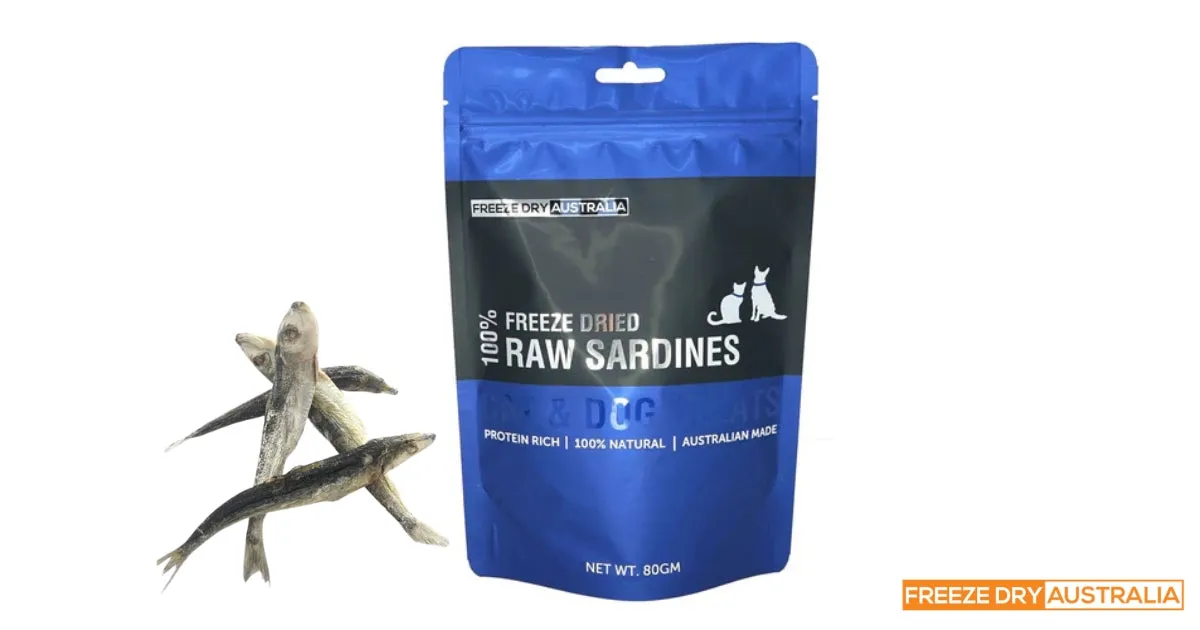Is your beloved canine companion constantly scratching, biting, or rubbing against furniture? Itchy skin in dogs is a common and often frustrating issue for both pets and their owners. While various factors can contribute to dermatological discomfort, understanding the root causes and making informed dietary choices is paramount to providing relief. This comprehensive guide will delve into identifying the triggers of canine itchiness and reveal how selecting the Best Dog Food For Skin Conditions can make a profound difference in your dog’s comfort and overall well-being. By focusing on appropriate nutrition, you can significantly alleviate symptoms and promote healthier skin and a shinier coat for your furry friend. A balanced diet plays a critical role in maintaining a strong skin barrier and a robust immune system, which are essential defenses against irritation and allergies. When addressing your dog’s skin health, consider a holistic approach that includes high-quality nutrition to support their skin and coat.
Understanding Itchy Skin in Dogs: Causes and Identification
Before you can effectively address your dog’s itchy skin, it’s crucial to identify the underlying cause of their discomfort. A thorough investigation can pinpoint the specific triggers, ranging from environmental factors to internal health issues. Persistent scratching is often a symptom of a deeper problem that requires careful attention and sometimes veterinary intervention.
Allergens and Food Intolerances
Just like humans, dogs can suffer from allergies and food intolerances that manifest as skin irritation. Environmental allergens are a frequent culprit, with seasonal allergies to pollen from grasses or trees causing redness, inflammation, and intense itching during specific times of the year. Dust mites, mold, and even common household cleaners can also trigger persistent skin discomfort. Beyond the environment, food intolerances to common ingredients such as chicken, beef, dairy products, or specific grains can lead to systemic inflammation that presents as skin issues. An elimination diet, guided by your veterinarian, is often necessary to pinpoint these dietary triggers.
Parasites and Skin Infections
External parasites are a notorious cause of intense itching in dogs. Fleas, ticks, and mites can infest your dog’s skin, leading to severe scratching, redness, and even secondary skin infections. Fleas, in particular, can cause allergic reactions in sensitive dogs, leading to a condition known as flea allergy dermatitis. Ticks can transmit diseases that weaken a dog’s immune system, while various types of mites can cause mange, a highly irritating skin condition characterized by hair loss and crusting. Skin infections, whether bacterial (like pyoderma) or fungal (such as yeast infections), often occur when the skin barrier is compromised by scratching, leading to open sores that become infected, further exacerbating the itch and discomfort. These infections typically present with redness, swelling, scabbing, and sometimes an unpleasant odor. Additionally, internal parasites like intestinal worms (roundworms, hookworms, and tapeworms) can indirectly affect skin health by impacting nutrient absorption and overall immune function, making a dog more susceptible to skin issues. If you suspect parasites are the cause of your dog’s itching, immediate veterinary attention and appropriate treatment, such as a dog mite treatment over counter, are essential to provide relief and prevent further complications.
Dry Skin
Dry skin in dogs can be a result of various environmental and care-related factors. Low humidity, especially prevalent during dry winter months or in arid climates, can strip moisture from a dog’s skin, leading to flakiness and itching. A lack of regular grooming can also contribute to dry, irritated skin, as dead skin cells and loose hair can accumulate, creating an environment ripe for irritation. Furthermore, frequent bathing with harsh shampoos or products not specifically formulated for canine pH levels can strip the natural oils that protect and moisturize the skin, leading to exacerbated dryness and discomfort. Ensuring proper humidity in your home, regular brushing, and using moisturizing, dog-specific shampoos are important steps in preventing dry skin.
Underlying Health Conditions
Itchy skin can sometimes be a symptom of deeper, underlying medical conditions that affect a dog’s overall health and well-being. These conditions often impair the body’s ability to maintain a healthy skin barrier, making dogs more vulnerable to irritation and infection.
- Hypothyroidism: This condition occurs when the thyroid gland doesn’t produce sufficient hormones. Symptoms can include dry, flaky skin, significant hair loss, and an increased susceptibility to skin infections due to a weakened skin barrier.
- Cushing’s Disease: Caused by an excess production of cortisol, Cushing’s disease can lead to thin, fragile skin, hair thinning, and frequent bacterial or yeast infections that contribute to persistent itching.
- Autoimmune Disorders: Conditions like pemphigus and lupus involve the immune system mistakenly attacking the skin, resulting in blistering, crusting, and severe inflammation.
- Chronic Infections: Persistent bacterial (e.g., pyoderma) or fungal (e.g., yeast) infections can cause red, inflamed skin, scabbing, foul odors, and excessive scratching, particularly in dogs with compromised immune systems.
To accurately identify the root cause of your dog’s persistent itching, consulting a veterinarian is crucial. They can perform a thorough examination, conduct diagnostic tests (such as blood work, skin scrapings, or allergy tests), and recommend the most appropriate course of action, which may include an elimination diet if food allergies are suspected.
 A small dog scratches its ear with its hind leg, illustrating the discomfort of itchy skin.
A small dog scratches its ear with its hind leg, illustrating the discomfort of itchy skin.
Choosing the Best Dog Food for Skin Conditions
Once potential causes are understood, selecting the appropriate diet becomes a powerful tool in managing and alleviating itchy skin. The best dog food for skin conditions will focus on ingredients that minimize allergic reactions, reduce inflammation, and support overall skin health.
Hypoallergenic and Novel Protein Diets
A cornerstone of managing itchy skin related to food sensitivities is selecting hypoallergenic ingredients. An ingredient is considered hypoallergenic if it has a low likelihood of triggering allergic reactions. Food allergies often develop from repeated exposure to the same proteins, such as chicken or beef. Therefore, switching to a novel protein source—one your dog has not been exposed to before and is less commonly found in standard dog diets—can significantly reduce allergic reactions and skin irritations. Excellent novel protein options include fish (like salmon or whitefish), venison, duck, or even kangaroo. These proteins are less likely to provoke an immune response and can help calm your dog’s irritated skin. Additionally, choosing easily digestible ingredients like sweet potato, pumpkin, or single-source proteins can further reduce the risk of gastrointestinal upset, which is often linked to allergic responses and can manifest in skin issues. Prioritizing a food for dogs skin and coat that features these types of ingredients can lay the foundation for improved skin health.
Grain-Free Options
For some dogs, grains like wheat, corn, or soy can be significant triggers for food allergies, sensitivities, or digestive intolerances. When a dog has a grain allergy, their immune system overreacts to proteins in the grains, leading to symptoms such as itchy skin, chronic ear infections, and gastrointestinal issues. Furthermore, many commercial pet foods utilize low-quality grain fillers that offer minimal nutritional value. For these reasons, many pet owners turn to grain-free dog food, which replaces grains with easily digestible alternatives. Common grain substitutes include nutritious options like sweet potatoes, peas, or pumpkin, which provide complex carbohydrates and fiber without the potential inflammatory effects of certain grains.
The Power of Fatty Acids
Omega fatty acids are absolutely essential for maintaining healthy skin and achieving a lustrous coat. Specifically, omega-3 fatty acids are potent anti-inflammatory agents that can help reduce skin inflammation, alleviate itching, and provide crucial moisture to the skin barrier. Look for dog foods that are rich in high-quality sources of these beneficial fats, such as fish oils (salmon oil, cod liver oil), coconut oil, or flaxseed. These ingredients not only help to soothe existing irritation but also contribute to a stronger, healthier skin barrier, making your dog less susceptible to future flare-ups. Regular intake of these fatty acids is key to long-term skin health.
Natural Ingredients and Avoiding Additives
When choosing the best dog food for skin conditions, simplicity and naturalness are key. Avoid artificial additives, colors, flavors, and preservatives that could potentially irritate your dog’s sensitive skin or trigger allergic reactions. Always scrutinize ingredient labels and keep an eye out for synthetic additives such as BHA (Butylated Hydroxyanisole), BHT (Butylated Hydroxytoluene), and the preservative Ethoxyquin. These chemicals can be problematic for sensitive dogs. Instead, opt for foods made with whole, natural ingredients that provide essential nutrients without unnecessary irritants. By sticking to a diet free from these questionable components, you minimize the risk of exacerbating skin issues and support your dog’s overall health and well-being.
 A close-up of dry dog food kibble, emphasizing quality ingredients for skin health.
A close-up of dry dog food kibble, emphasizing quality ingredients for skin health.
Effective Feeding Strategies for Itchy Dogs
Beyond choosing the right ingredients, how you feed your dog can also impact their skin health. Implementing thoughtful feeding practices can help manage symptoms and prevent flare-ups.
Portion Control
Overfeeding is a common mistake that can inadvertently worsen skin issues. Excess weight can lead to increased inflammation throughout the body, putting additional stress on the skin and exacerbating conditions like allergies and hot spots. It can also lead to issues such as obesity, which puts undue strain on joints and organs. Consulting your veterinarian for guidance on appropriate portion sizes is crucial. They can provide recommendations tailored to your dog’s specific needs, considering factors such as their age, current weight, breed, activity level, and the severity of their skin condition. Sticking to recommended caloric intake helps maintain a healthy weight and supports overall well-being, which in turn benefits skin health.
Small, Frequent Meals
Instead of feeding two large meals a day, consider dividing your dog’s daily food allowance into smaller, more frequent meals throughout the day. This approach can help maintain more stable blood sugar levels, which can be beneficial in reducing systemic inflammation. Consistent blood sugar levels can also prevent spikes that might trigger or worsen allergy symptoms. Additionally, smaller meals are often easier to digest, reducing the workload on the digestive system and potentially minimizing any gastrointestinal discomfort that could indirectly affect skin health.
Avoiding Specific Allergens
Effectively addressing itchy skin in dogs often hinges on identifying and rigorously avoiding potential allergens and food intolerances in their diet. This targeted approach is fundamental to long-term relief.
- Hypoallergenic and Limited Ingredient Diets (LID): These specialized foods are formulated to minimize the risk of allergic reactions. Hypoallergenic diets often feature hydrolyzed proteins, where the protein molecules are broken down into smaller components, making them less likely to be recognized and attacked by the immune system. Limited Ingredient Diets (LIDs) focus on a single, novel protein source and a minimal number of other ingredients to reduce exposure to common allergens. Many high-quality dog food brands now offer excellent LID options specifically designed for sensitive pups. Freeze-dried whole sardines from brands like Freeze Dry Australia are an excellent choice for dogs with skin allergies, as they provide a natural and highly concentrated source of omega-3 fatty acids, which are crucial for reducing inflammation and improving coat and skin health. These sardines are gently processed through freeze-drying, preserving their robust nutritional value while being free from common allergens, making them a highly digestible and beneficial treat or supplement for sensitive dogs.
 A dog sits calmly, suggesting a well-balanced diet contributes to its serene demeanor.
A dog sits calmly, suggesting a well-balanced diet contributes to its serene demeanor.
Essential Supplements for Canine Skin Health
In addition to a carefully chosen diet, certain supplements can play a supportive role in alleviating itchy skin and promoting overall skin health in dogs. These supplements work by reducing inflammation, strengthening the skin barrier, encouraging healing, and providing essential nutrients that might be lacking in a dog’s regular diet. They can help to soothe irritation, reduce excessive scratching, and improve hydration. When considering the best dog food for skin conditions, remember that supplements can be a powerful complement.
Omega-3 Fatty Acids (Fish Oil)
Fish oil is one of the most highly recommended supplements for dogs with itchy skin due to its rich content of omega-3 fatty acids, particularly EPA (eicosapentaenoic acid) and DHA (docosahexaenoic acid). These essential fatty acids are powerful anti-inflammatory agents that can significantly reduce skin inflammation, calm itching, and support the development of a healthy skin barrier. Regular supplementation with fish oil can lead to a noticeable improvement in coat quality, making it shinier and healthier.
Biotin
Biotin, a B vitamin (B7), is widely recognized for its role in promoting healthy skin, hair, and nails in both humans and animals. Supplementing your dog’s diet with biotin may help strengthen the skin barrier, improve coat texture, and reduce the flakiness and dryness often associated with itchy skin conditions. It plays a crucial role in cell growth and metabolism, which is vital for skin regeneration.
Vitamin E
Vitamin E is a potent antioxidant that helps protect cells from damage caused by free radicals, which are unstable molecules that can contribute to inflammation and aging. For dogs with itchy skin, Vitamin E can help by reducing oxidative stress and supporting the immune system, leading to healthier skin and a more resilient coat. It can also act as an anti-inflammatory, soothing irritated skin from the inside out.
Zinc
Zinc is a vital trace mineral that plays a crucial role in numerous bodily functions, including maintaining healthy skin, hair, and immune function. A deficiency in zinc can manifest as various skin issues, including dry, scaly, and itchy skin, hair loss, and impaired wound healing. Supplementing with zinc, under veterinary guidance, can help correct deficiencies and contribute to healthier skin, making it an important consideration for dogs with persistent itching. When considering supplements, remember that a best probiotic for dogs with loose stools can also indirectly support skin health by improving gut flora balance, which is intrinsically linked to the immune system and can impact allergic responses.
Before introducing any new supplement into your pet’s regimen, it is absolutely essential to consult with a veterinarian. They can accurately diagnose the underlying cause of your dog’s itchy skin, recommend the most appropriate supplements, and guide you on correct dosages based on factors such as your dog’s size, breed, age, and specific health condition. Self-medication can be risky and may not provide the desired results or could even be harmful.
 A dog being lovingly bathed in a foamy lather, illustrating proper skin care.
A dog being lovingly bathed in a foamy lather, illustrating proper skin care.
FAQs about Dog Food for Skin Conditions
What Is The Best Food for Dogs with Itchy Skin?
The best dog food for skin conditions is typically natural, hypoallergenic, and free from common allergens like wheat, corn, soy, dairy, beef, chicken, and artificial additives. Look for limited ingredient diets featuring novel protein sources such as fish, venison, or duck, along with easily digestible carbohydrates like sweet potato. Brands focusing on high-quality, whole ingredients are often excellent choices.
What Type of Diet Should I Follow for Dogs with Skin Allergies?
For dogs with skin allergies, a diet focused on avoiding known allergens is key. This often means transitioning to a hydrolyzed protein diet, where proteins are broken down to be less allergenic, or a single-protein source diet using novel proteins like kangaroo, venison, or fish. These diets minimize exposure to common triggers, helping to reduce allergic responses.
What Type of Food Should I Avoid for Dogs with Itchy Skin?
To minimize skin irritation, you should generally avoid foods containing common allergens such as beef, chicken, dairy products, soy, corn, and wheat gluten. Additionally, steer clear of foods with artificial additives, colors, flavors, and preservatives, as these can exacerbate sensitivities.
What Are Some Home Remedies for Dogs With Itchy Skin?
While home remedies can offer temporary relief, they should always be discussed with your veterinarian. Some common home remedies include applying coconut oil directly to irritated skin for moisturizing and anti-inflammatory benefits, or adding fish oil supplements to their diet for omega-3 fatty acids. Oatmeal baths can also provide soothing relief for generalized itching. However, always consult your vet to ensure your pet is receiving proper veterinary care and that home remedies are safe and appropriate for their specific condition.
Do eggs help dogs with itchy skin?
Yes, eggs can potentially help dogs with itchy skin. They are a rich source of high-quality protein, essential fatty acids, and vitamins, particularly biotin (a B-vitamin), which are all vital for promoting healthy skin and a shiny coat. Biotin and omega-3 fatty acids, found in eggs, are known for their anti-inflammatory properties, which can help reduce skin inflammation and improve overall skin conditions. However, before incorporating eggs into your dog’s diet, it is crucial to consult your veterinarian, as some medical conditions or individual sensitivities might prevent dogs from safely consuming eggs.
Conclusion
Successfully managing itchy skin in dogs requires a dedicated and informed approach. The journey begins with accurately identifying the underlying causes, which can range from environmental allergens and parasites to specific food intolerances or more serious health conditions. Once the triggers are understood, selecting the best dog food for skin conditions becomes a powerful tool in your strategy, focusing on hypoallergenic ingredients, novel proteins, and beneficial fatty acids to reduce inflammation and fortify the skin barrier.
Beyond diet, adopting effective feeding strategies like portion control and smaller, more frequent meals, alongside strategically chosen supplements such as omega-3s, biotin, Vitamin E, and zinc, can significantly contribute to your dog’s comfort and long-term dermatological health. Remember, every dog is unique, and what works for one may not work for another. Therefore, always prioritize a consultation with your veterinarian to develop a tailored plan that addresses your dog’s specific needs, ensuring they receive the proper nutrition and care to live a happy, itch-free life. Explore a world of natural treats and skin care products designed to alleviate and prevent itchy skin in dogs, providing your furry friend with ultimate relief and comfort.
